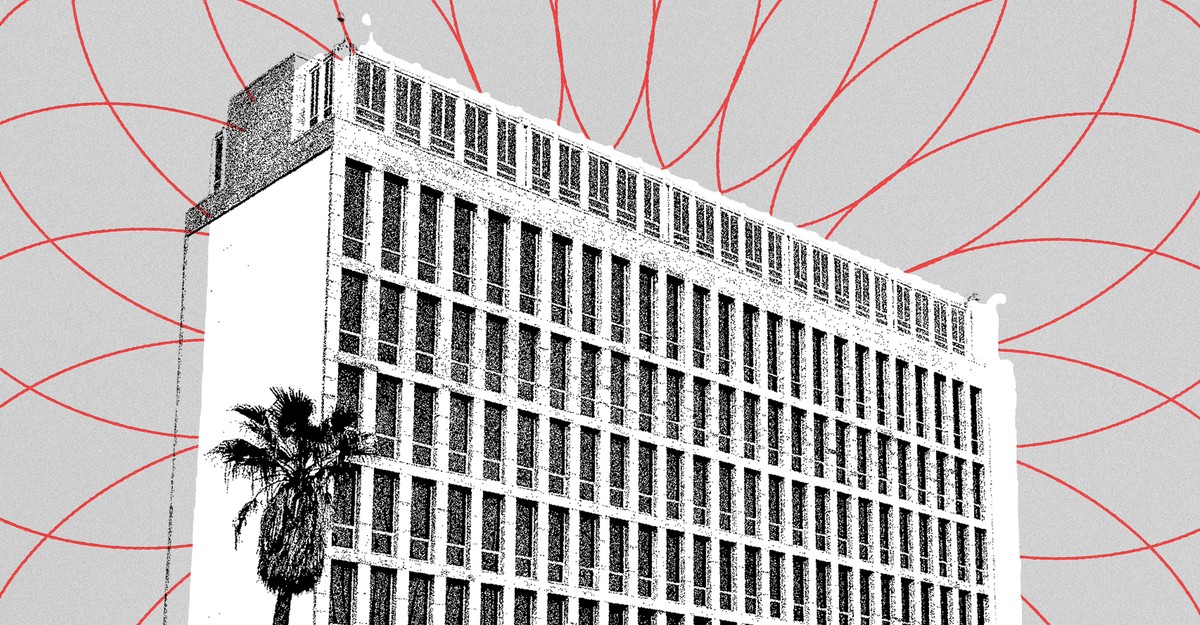Unraveling the Mystery of Havana Syndrome
The enigmatic Havana Syndrome has once again emerged as a focal point of concern and intrigue, raising critical questions about its origins, implications, and the broader ramifications for international relations. First reported in late 2016 among U.S. diplomats in Havana, Cuba, the phenomenon has been characterized by a range of puzzling symptoms, including headaches, dizziness, cognitive difficulties, and auditory sensations. As new cases have surfaced recently, the urgency to uncover the truth behind this baffling phenomenon grows stronger.
The Origins of Havana Syndrome
The initial reports of Havana Syndrome came from American and Canadian diplomats stationed in Havana. They described sudden onset symptoms that seemed to arise without any clear cause, leading to widespread speculation. While early theories suggested the possibility of sonic attacks or exposure to a novel form of energy weapon, the lack of definitive evidence left many questions unanswered.
In the years that followed, the syndrome appeared in various locations around the world, including China, Russia, and even Washington D.C. This geographical spread added another layer of complexity to the investigation. Was this a targeted attack, or was it merely coincidental? The ambiguity surrounding the syndrome’s origins has fueled speculation and concern among health officials and political leaders alike.
Recent Developments and New Cases
In recent months, reports of new cases have reignited interest in the Havana Syndrome, with several individuals, including diplomats and intelligence officials, reporting similar symptoms. The U.S. government has acknowledged these new incidents, prompting renewed investigations and discussions regarding the implications for national security.
According to medical experts, the symptoms associated with Havana Syndrome can vary significantly from person to person. Common complaints include:
- Headaches
- Dizziness
- Nausea
- Cognitive impairments
- Tinnitus or auditory disturbances
This variability complicates both diagnosis and treatment, as healthcare professionals struggle to identify a common underlying cause. Additionally, the psychological impact of the syndrome cannot be overlooked. Many individuals report feelings of anxiety and fear, stemming from the uncertainty surrounding their health and safety.
Investigating the Causes of Havana Syndrome
The investigation into the causes of Havana Syndrome has involved multiple agencies, including the CIA and the State Department. In 2021, a report from the National Academies of Sciences, Engineering, and Medicine suggested that directed microwave energy might be a plausible explanation for the symptoms experienced by victims. This theory has gained traction, but it remains unproven.
Experts continue to debate various hypotheses surrounding the etiology of the syndrome. Some of the leading theories include:
- Acoustic Weapons: Some researchers propose that the symptoms could result from exposure to a type of acoustic weapon that produces harmful sonic waves.
- Microwave Energy: The idea that directed microwave energy could cause neurological damage has been a significant focus of investigation.
- Psycho-social Factors: Some analysts argue that psychological and social factors may play a role, suggesting that stress and anxiety related to diplomatic missions could manifest physically.
Despite extensive investigations, definitive conclusions remain elusive, underscoring the complexity of understanding Havana Syndrome.
The Impact on International Relations
The resurgence of Havana Syndrome has significant implications for international relations, particularly between the United States and countries where cases have been reported. The notion of a potential attack on diplomats raises alarms about the safety and security of personnel stationed abroad. This has led to heightened tensions and increased scrutiny of foreign governments.
Moreover, the uncertainty surrounding the syndrome complicates diplomatic engagements. Countries accused of harboring hostile actions may find themselves facing a backlash, whether justified or not. This situation creates a challenging environment for diplomacy, where mistrust can overshadow dialogue and cooperation.
Government Response and Support for Victims
In light of the recent developments, the U.S. government has ramped up its support for individuals affected by Havana Syndrome. This includes medical evaluations, psychological support, and financial compensation for those who have suffered the syndrome’s effects. The government’s commitment to addressing the concerns of victims reflects a recognition of the seriousness of the situation.
Additionally, the establishment of task forces and specialized units within intelligence agencies aims to investigate and respond to reports of Havana Syndrome. This proactive approach highlights the administration’s intent to prioritize the health and safety of its personnel while seeking answers regarding the syndrome’s origins.
Moving Forward: A Call for Clarity and Collaboration
The resurgence of Havana Syndrome presents an intricate challenge that demands clarity, collaboration, and a commitment to finding solutions. As experts continue to investigate the phenomenon, it is crucial for the international community to engage in open dialogue and share findings that may contribute to understanding the syndrome’s causes and effects.
Moreover, fostering a supportive environment for affected individuals is paramount. By prioritizing their health and well-being, governments can demonstrate their commitment to safeguarding their personnel and upholding the values of diplomacy and cooperation.
Conclusion
The mystery of Havana Syndrome remains unresolved, yet its resurgence serves as a reminder of the complexities inherent in international relations and health diplomacy. As new cases emerge, the quest for answers continues, with experts striving to untangle the web of uncertainty surrounding this phenomenon. By approaching the situation with a focus on investigation, support, and collaboration, we can hope to shed light on the origins of Havana Syndrome and its implications for the future.
In the face of adversity, a collective effort to understand and address this syndrome stands as a testament to the resilience of those affected and the commitment of nations to ensure the safety and security of their citizens abroad. As we move forward, the pursuit of truth and healing remains an essential endeavor in unraveling the mystery of Havana Syndrome.
See more WebMD Network



